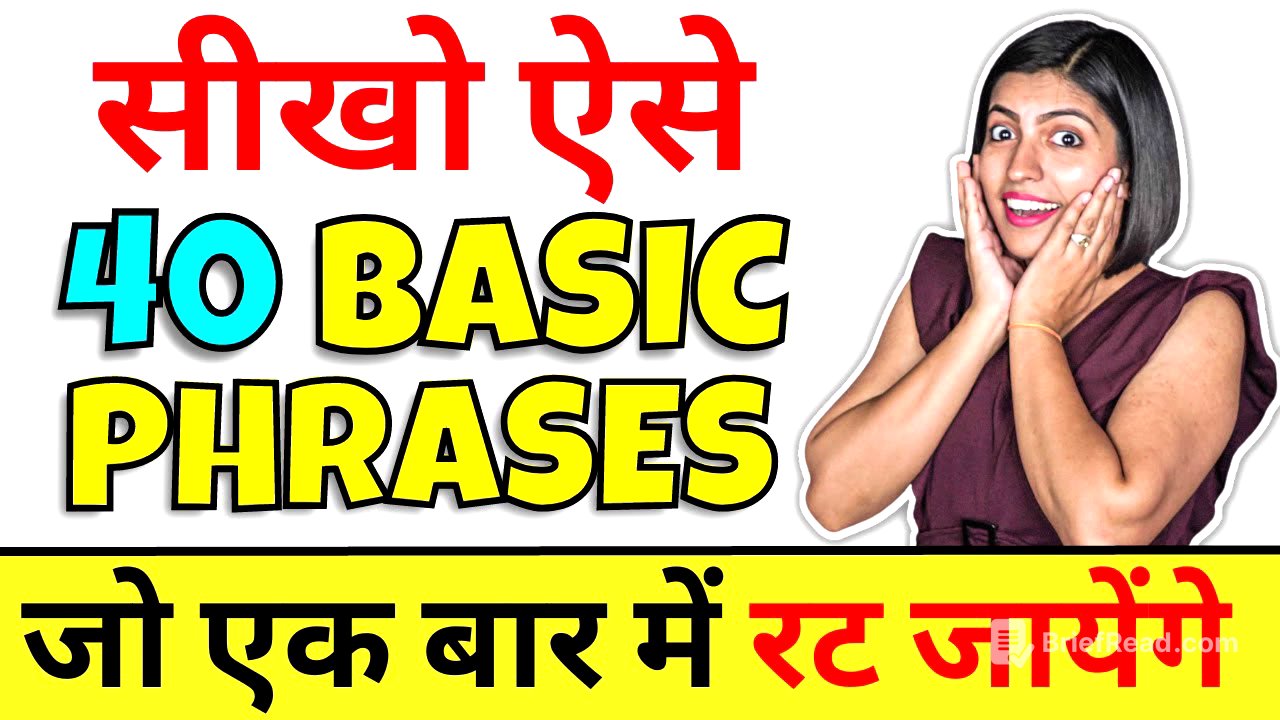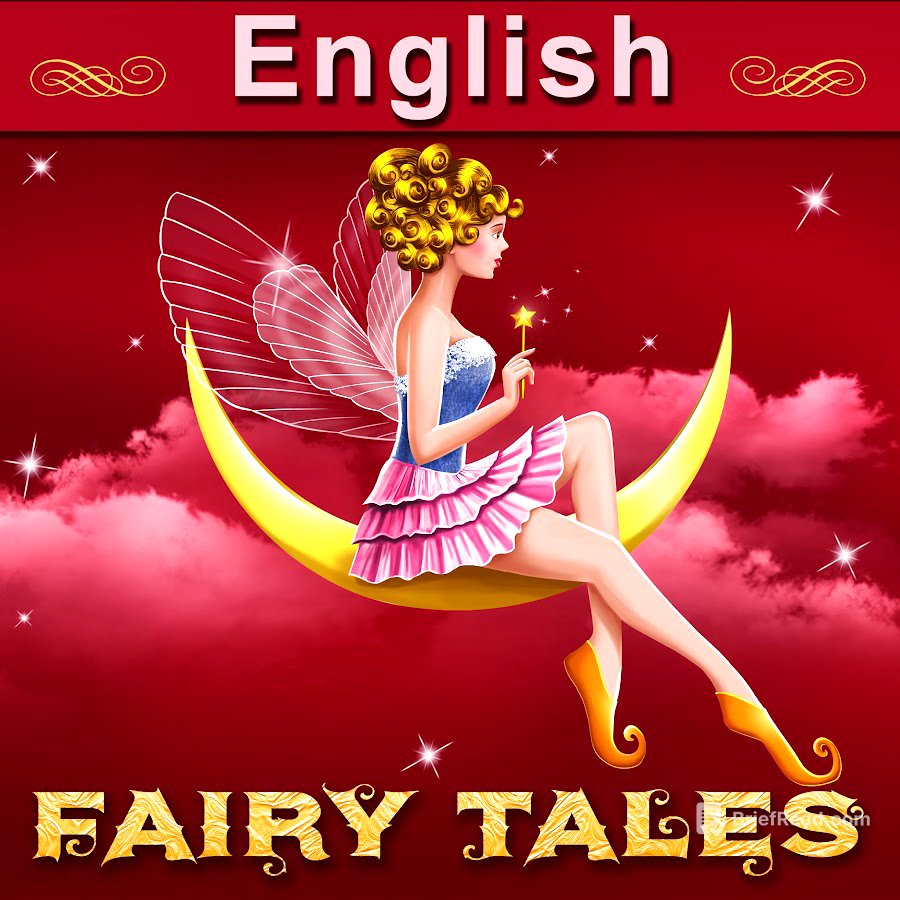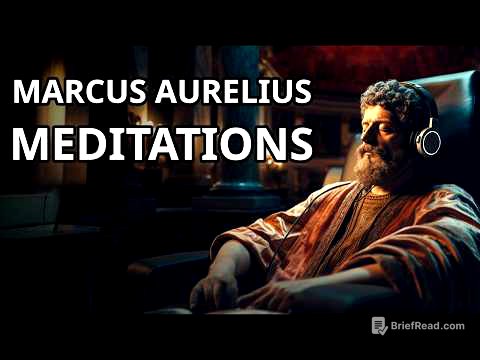TLDR;
This video by English Connection focuses on teaching basic English phrases and idioms to help learners improve their understanding and speaking skills. It emphasizes the importance of knowing phrases for both comprehension and effective communication. The video covers a variety of phrases related to promises, beliefs, gratitude, introductions, departures, and general expressions, providing clear explanations and examples for each.
- Importance of learning basic phrases for daily use.
- Understanding phrases is crucial for avoiding misinterpretations.
- Practical examples and explanations for each phrase.
Introduction [0:00]
The video starts by highlighting the importance of understanding English phrases through a humorous anecdote from "Koffee with Karan," where a misunderstanding of the phrase "under the weather" led to confusion. The host emphasizes that knowing phrases is essential to avoid embarrassment and improve English communication skills. The video promises to teach many basic phrases for daily use.
Basic Phrases [0:39]
The importance of learning basic phrases used daily is emphasized. Understanding these phrases is as important as speaking English. The host encourages viewers to stay until the end of the video to learn these essential phrases.
Mark my words. [1:21]
"Mark my words" is used when you are confident that what you are saying will happen. It means to remember and pay attention to what you are saying because it is bound to occur.
Words fail me. [1:41]
"Words fail me" is used when you cannot express how you are feeling because the feeling is too overwhelming. It indicates that the available vocabulary is insufficient to convey the depth of emotion.
Have a word with him. [2:05]
"Have a word with him" means to talk to someone. The word "word" here refers to a conversation. For a female, it would be "have a word with her."
She left without a word. [2:31]
"She left without a word" means she left without saying anything. It indicates that she did not utter a single word before departing.
He is a man of few words. [2:46]
"He is a man of few words" describes someone who speaks very little. For a woman, it would be "She is a woman of few words."
I give you my word. [3:26]
"I give you my word" is a way of promising something. The word "word" is used in the singular form here to emphasize the promise.
I keep my word. [4:25]
"I keep my word" means keeping a promise. It is an alternative way of saying "I keep my promise." The phrase can be adapted for different subjects, such as "She keeps her word" or "He keeps his word."
He's a man of his word. [4:50]
"He's a man of his word" describes someone who does what he says. It means that he fulfills his promises and commitments.
I don’t believe you! [5:23]
"I don’t believe your words" means not trusting what someone is saying. It expresses disbelief in the truthfulness of their statements.
I don’t believe in you! [5:42]
"I don’t believe in you" means not trusting someone. It indicates a lack of faith or confidence in the person's abilities or character.
I don’t believe in God. [6:09]
"I don’t believe in God" is used to express a lack of belief in the existence of God. Similarly, one might say, "I don’t believe in ghosts" to express disbelief in ghosts.
Believe it or not. [6:34]
"Believe it or not" is used when saying something that might be hard to believe but is true. It is an expression to emphasize the truth of a statement, even if it seems unlikely.
Believe me! [6:49]
"Believe me" is used to emphasize that what you are saying is true. It is a way to ask someone to trust your words.
Don’t you believe it! [7:04]
"Don’t you believe it" is used to express disbelief or shock, similar to saying "Don’t you dare." It conveys a strong sense of incredulity.
I don’t believe it! [7:25]
"I don’t believe it" is a simple expression of disbelief. It indicates that you find something hard to accept or comprehend.
Actions speak louder than words [7:33]
"Actions speak louder than words" means that deeds are more important than words. It emphasizes that what you do is more significant than what you say.
Many thanks! [7:58]
"Many thanks" is a way of saying thank you very much. It is a simple expression of gratitude.
Thanks a million! [8:10]
"Thanks a million" is an expression of great gratitude. It is used to convey heartfelt appreciation.
Nice to meet you. [8:18]
"Nice to meet you" is said when you first meet someone, usually after exchanging names. It is a polite way to acknowledge the introduction.
Nice meeting you. [9:17]
"Nice meeting you" is said when taking leave after meeting someone. It is a polite way to end the conversation and say goodbye.
Pardon? / Sorry? [9:40]
"Pardon?" or "Sorry?" is used when you did not hear or understand what someone said. It is a polite way to ask them to repeat themselves.
Pardon me. [9:56]
"Pardon me" is used to ask for forgiveness or as an alternative to "excuse me" or "I am sorry." It can also be used when you didn't hear something.
I have to go. [10:16]
"I have to go" is a simple way of saying that you need to leave. Other variations include "I have got to go" or "I got a go."
I have to leave. [10:27]
"I have to leave" is another way of saying that you need to depart. It is similar in meaning to "I have to go."
Leave me be. / Let me be. / Leave me alone. [10:32]
"Leave me be," "Let me be," and "Leave me alone" all mean to not bother or disturb someone. They are used when you want to be left in peace.
Leave it at that. [10:52]
"Leave it at that" means to end something there. It is used to indicate that a topic or situation should not be discussed or pursued further.
Leave it out. / Stop it. [11:15]
"Leave it out" is similar to saying "Stop it." It is used to tell someone to stop saying or doing something.
Take note of what he says. [11:43]
"Take note of what he says" means to listen carefully and remember what someone is saying. It implies that the information is important and should be remembered.
What am I like? [12:04]
"What am I like?" is used when someone has done something wrong or silly. It is a rhetorical question that implies the person is questioning their own behavior or the behavior of someone else.









